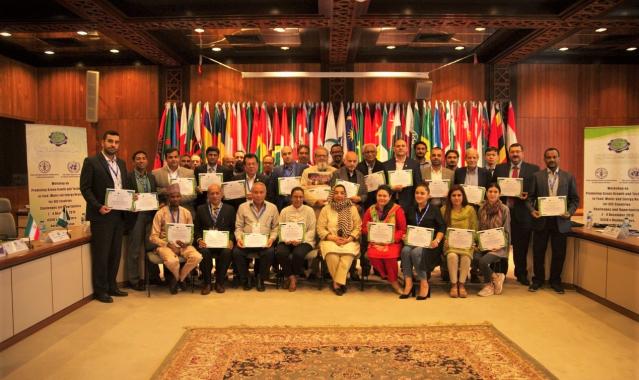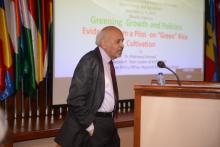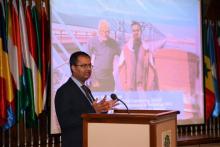
Faculty and staff from the Centre for Water Informatics and Technology (WIT), participated in the international workshop 'Promoting Green Growth and Technology in Food, Water and Energy Nexus for OIC Countries – Challenges and Opportunities' held at the Islamic Chamber of Commerce and Industry and Agriculture (ICCIA)'s Headquarters in Karachi, Pakistan on 2-4 December 2019 in collaboration with United Nations Food and Agriculture Organisation (FAO). The conference was attended by approximately 15 OIC member countries. The centre’s representatives included; Dr. Abubakr Muhammad, Executive Director, Dr. Mahmood Ahmed, Senior Research Fellow, who was also the principal organiser for this workshop, Dr. Fozia Parveen, Post-doctoral Fellow and Adjunct Faculty, and Dr. Sanval Nasim, Assistant Professor, Department of Economics.
WIT’s faculty spoke on various topics regarding sustainable development under the Water, Energy, Food nexus. Dr. Muhammad, presented an Introduction to Water–Energy–Agriculture Nexus in Context of OIC Countries. Dr. Nasim provided an economic perspective speaking on 'Green Economy Enabling Environment: From Command Control to Market Based Solution', as well as, 'Policy and Institutional Constraints on the Efficient Allocation and Optimal Management of Groundwater'. Dr. Parveen gave a presentation on 'Wastewater Treatment Technologies and Management in The Mediterranean Region of OIC: The Case of Jordan', emphasising the environmental impact of development. Dr. Ahmad presented his policy work under the title, 'Greening Growth: Evidence from a Pilot on Green Rice Cultivation, subsequently concluding the session with his presentation 'Water, Energy and Food Nexus Initiatives in OIC Countries from Ideas to Projects'. Farooq Mushtaq, an engineering student also participated in this workshop. The faculty and participants considered it a good opportunity to gather and look at the Nexus issues together in order to minimise challenges.










